BIT OF THE PAST
I am rather unpolished than educated man, thought widely read since I have had plenty of time to read.
I had followed the sea when I was at age of ten, by taking part in the fishing at sea and learn to row the boat under the strict command of those fishermen, I very early became know how tasted the hard work and how the callus grew in my palms. Hard it was, and the hardness was as everyday life in those days on that coastal region, it prepared me to the hardship. Almost every young lads on that waterfront were waiting the right age to come when he could have the passport and is allowed go to sea.The sea was not only the great highway out to the world, it was also the means- addition earn the money -also get out see to the word since in that time there was very little other way to travel widely. When I was filled sixteen years I joined to merchant service, signing on my fist foreign going ship as a galley boy. At last my desire was realized.
I have faced the dangers of the sea and shore which have been part of my life and heritage of seamen as well as the spell of beach-comber when there were not a ship to sign on.
The nowadays seaman cannot learn to be seaman in the old sense, because there is not the ships and the ship's company where to be learn the seamanship and he cannot keep himself physically fit because there is not the work to do.
When sailor was off paid and they stepped on shore with their money, they were soon surrounded by landcharks, male and females.
THE SIREN WERE HAILING
I sat on my bunk and listened. What was this all about? When I unlocked the door, pushed it ajar, and peeped into darkness I saw two human figures standing near by the rail. The scene was illuminated by a weak lamp on the bulkhead making the bulwark lustrous with the wet skin of iron. Beyond the bulwark, there was the vast emptiness of the dark sea, from where the sound of the waves and the moan of the wind could be heard. One of these men wore an old military blouse and a woollen hat was pulled over his head. Another character, next to the first one has nothing but bunch of hair on his head, the man dtood half-faced to the light; he seemed to be a lean, lightly dressed black man and was close to an ash-dumper that was attached to the bulwark.
The yellow wedge of light from the door cut across the darkness and hit the two men standing by rail; white eyeballs flashed and the white sweatband stood out with a clear stripe against the black skin of the N. I shut the door. I didn’t know what the time was and I lay down half-awake on the bunk. Later, how much later I have no knowledge. I was awakened by a loud banging on the door and there was a voice crying outside: “Wake up! Wake up! It’s six o’clock! Wake up, you!”
It was quarter-past six as I staggered into the mess room in which I found Rissa: she was sitting at the end of the table with a cup of coffee in front of her, smoking a cigarette. She was a large woman with dark hair; there was shadow on her upper lip as a fair moustache. When she spoke there was deep alto in her tone. She could have been about age of thirty or less; the strong eyebrows and thick dark hair gave her a stern expression; by all accounts she appeared to have a strong character. When she saw my entering, she glanced at me.
“I was told that you have locked the cabin’s door. Is it true?” she asked.
“Who told you?”
“The watch told me that the door was locked,” she said.
I nodded.
“You don’t keep the door locked at sea. Shore people locked their doors, but not seamen on the open sea. If something happens, you will be locked in there and will go down with the ship. Try to remember it. Now you must bring the coffee up to the bridge.”
At half-past six, under the direction of Rissa, I collected cups upon the tray; the moody minded and faced cook chucked two buns on tray and a full can of black coffee, then thrust it into my hand. Holding the tray in balance, I set out and started for the bridge, climbing up the ladder that led up to it; the way was steep and slippery. Step by step I rose; the higher I got, the more the ship was rolling. Each step asked for hard labour and all the time the ship rolled and plunged, while single-handedly I struggled up. It was hard work, but finally I managed ending up on the bridge and stood in front of closed sliding door of the wheelhouse. The chief mate, wearing a long fur coat, plucked the door open. I held the tra out with straight hands unable to move.
“What the hell you are up to? Take it in all the way there. Right away there.” At the same moment the ship swung and I plunged into the wheel-house, thrown by the impetuous inclination of the ship, and without reducing my speed I crossed the floor of the wheelhouse and was hurled into the navigation cabin. Then, under the ship’s reverse movement, I could stop and laid the tray on the chart table. As I slowly returned cross the wheelhouse, I had time to notice the steering wheel on my left side, and behind it, was, standing on the low platform, the seaman I had seen the previous night, talking with the black man on deck. Later I heard him called as Metros.
With greedy eyes I looked about the environment. The wheelhouse was panelled in teak and there was a brass binnacle near the front window. On my right hand stood the well-polished telegram machine; behind the row of numerous windows was a great view of the extensive sea. I went out to the wing of the bridge and stayed for a moment to look. It was good stage to view around; there was an almost unhampered panorama over the ship and far out over the sea. Leaning over the windbreaker I could see the whole forepart of the ship clearly in the grey light of the sky above the mast. Rolling slowly, the mast head made a gentle arc against the sky.
The general colour of the sea was grey, so was the sky above. I was struck by this infinite expanse around me. The ship rolled slowly from left to right and back again; the standing rigging and all the fixed wires and ropes rose diagonally up and were affixed to the mast under the black cross tree. Looking backward, I could see how the stern rose and fell at even intervals and the wake was visible with two white lines of foam behind the ship.
Through the cold grey sea the ship proceeded and the undulating wake behind it was as straight as an arrow. We were heading before the wind; followed by the grey waves that lifted their manes in the same direction. The black smoke of burning coal was drifting with the wind and was lowering down in troughs. It was quiet; the greatest noise in this environment was the sound of the raising and falling waves and the hiss of the bow wave. Aloft from the rigging I could hear slow hum of breeze.
Saturday, 16 January 2010
Subscribe to:
Post Comments (Atom)
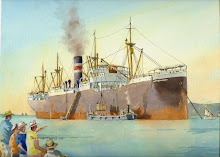
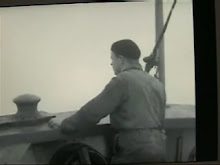
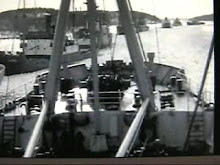
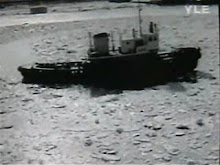
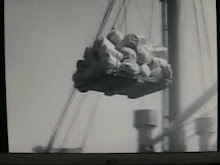
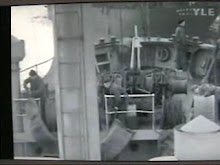


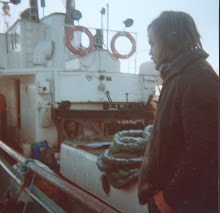
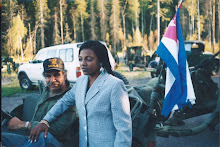








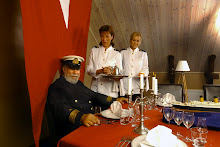
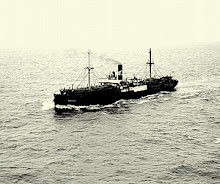


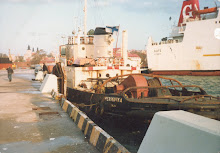
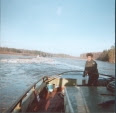



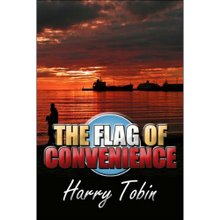







No comments:
Post a Comment
say what you want to say